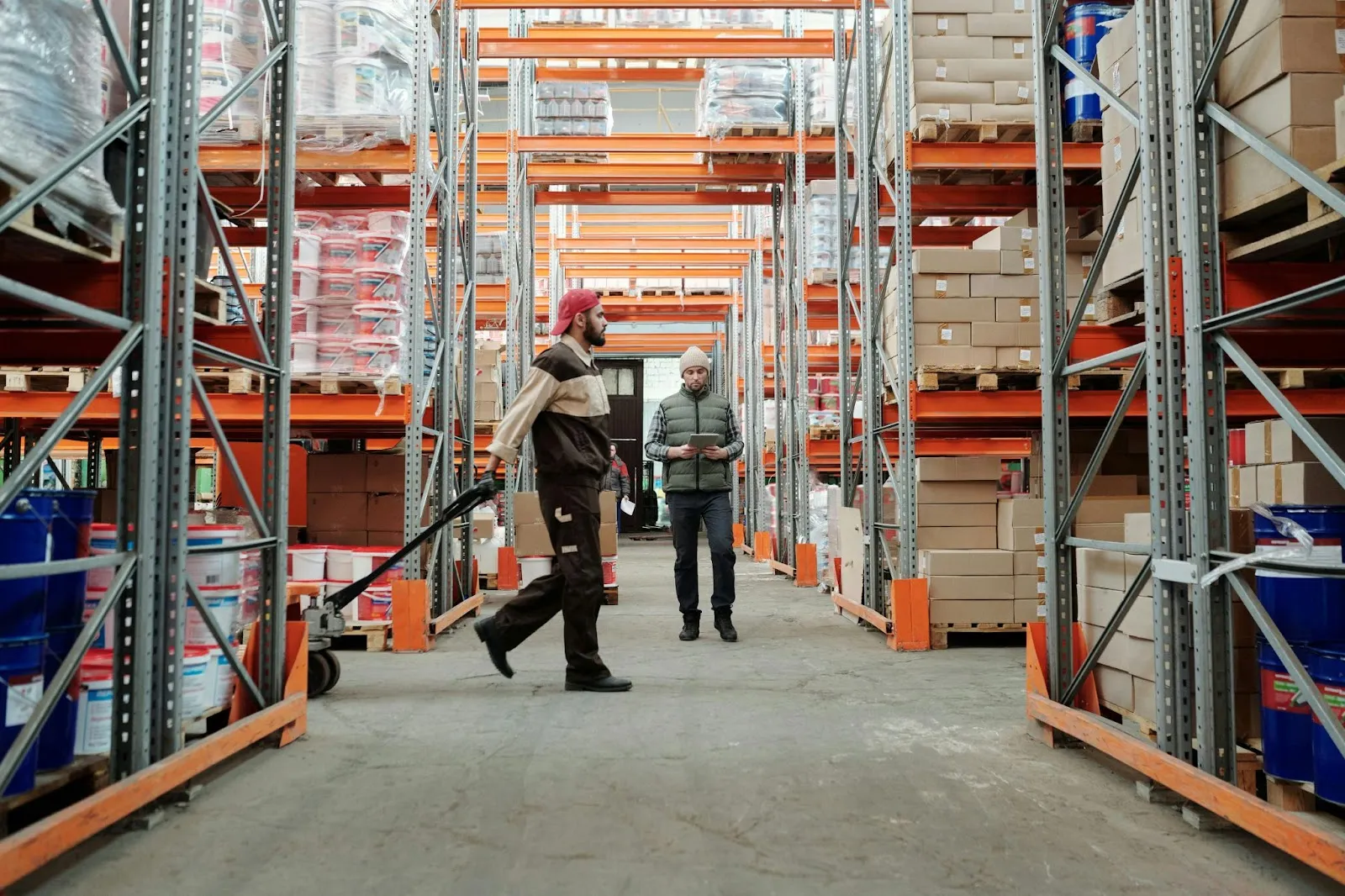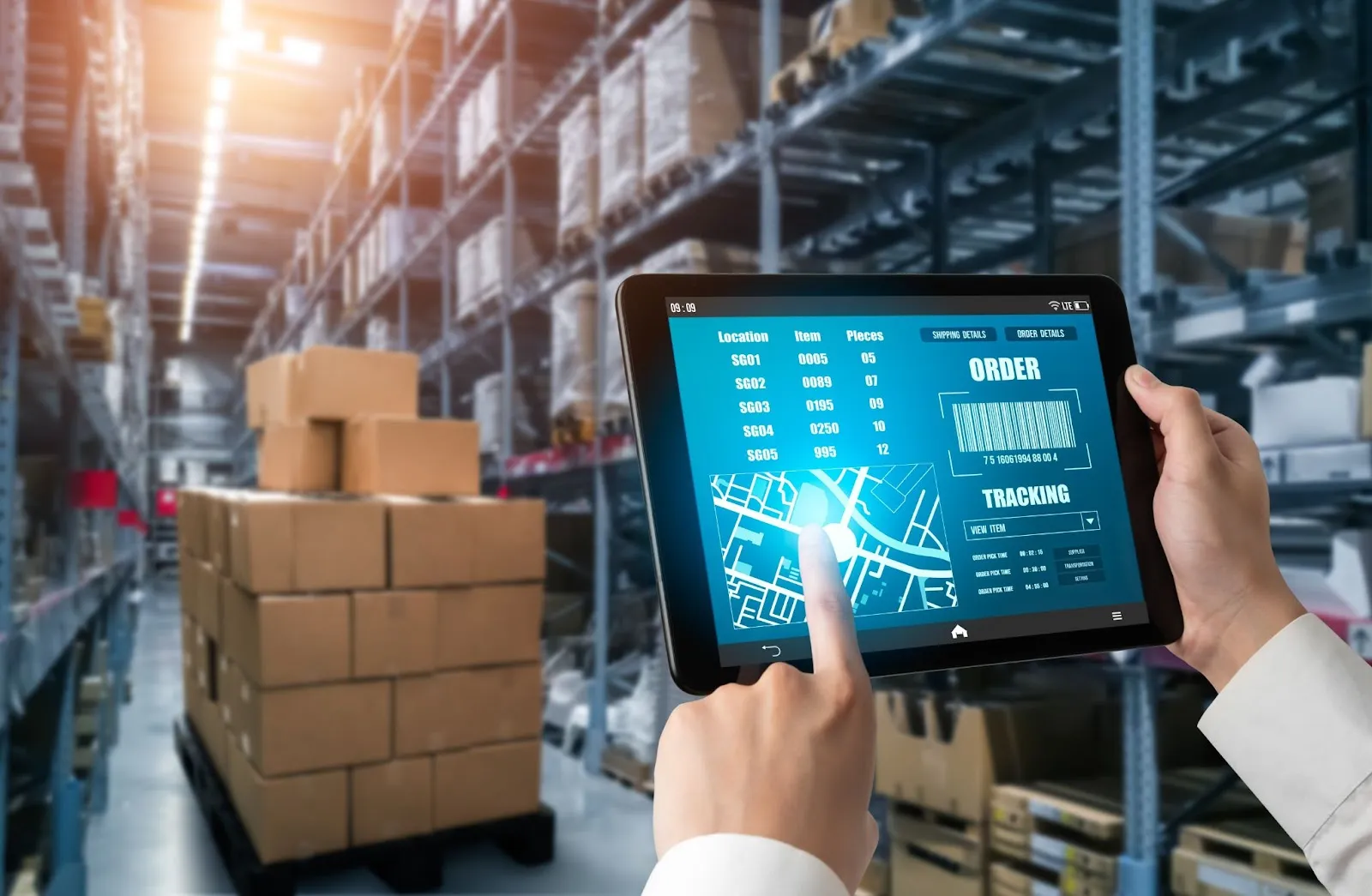RFID Applications Across Industries: How Businesses Are Leveraging RFID for Growth
Over the past decades, RFID solutions for business have grown remarkably, and their applications span multiple industries. A 2023 survey shows that the global RFID market is forecasted to grow to USD 25.24.9 billion by 2033, reflecting a CAGR of 9.1%.
This growth underscores RFID's expanding role in enhancing operational efficiency and accuracy. Industries like retail, logistics, and manufacturing are increasingly adopting RFID applications to expand process flow, reduce errors, and improve asset tracking.
As businesses continue to seek innovative solutions for complex challenges, RFID stands out as a catalyst for operational excellence. In this blog, we will explore RFID integration across various sectors and demonstrate how effective it is for business growth.
Understanding RFID and Its Versatile Applications
Using RFID technology enables businesses to optimize their operations and improve work efficiency. RFID applications are widely known across diverse industries. But, let us first understand how RFID works:
How RFID works in different environments
RFID systems consist of tags, readers, and software. Tags store data, readers capture this data, and software processes it.
In retail, RFID tracks inventory; in manufacturing, it monitors production; in logistics, it manages shipments. Each environment utilizes RFID's capabilities to meet specific operational needs.
Benefits of RFID for business operations
Implementing RFID applications brings you numerous advantages. These benefits collectively contribute to business growth and competitiveness:
- Enhanced inventory management: Real-time tracking reduces discrepancies and stockouts.
- Error-proof: Automation of data collection minimizes manual errors.
- Cost reduction: Streamlined processes lead to operational savings.
- Better decision-making: Accurate data supports strategic planning.
RFID in Retail and E-commerce

The retail and e-commerce sectors utilize RFID applications to augment inventory management and customer experiences, such as:
Improving inventory accuracy
Accurate inventory is vital in retail. RFID provides real-time visibility into stock levels, reducing discrepancies and stockouts.
For example, a world-known shoeware brand implemented RFID applications across its supply chain. This inventory visibility led to a revenue increase in 2018 without notable inventory growth. The initiative also reduced both direct and wholesale transportation costs.
Enhancing customer experiences with RFID checkout
RFID streamlines the checkout process so the customers get the best experience. For example, a retail giant integrated RFID into its operations, and its inventory accuracy went from 63% to 95%. This improvement reduced out-of-stock by up to 50% and increased profitability.
RFID in Logistics and Warehousing
The logistics and warehousing sectors use RFID applications to optimize supply chain tracking and reduce lost shipments.
Optimizing supply chain tracking
With real-time tracking of goods, RFID applications help businesses gain supply chain visibility. This technology encourages businesses to monitor products throughout transit, reducing delays.
Reducing lost shipments with RFID tags
Lost shipments surely impact profitability for any business. RFID tags help mitigate this issue by providing precise tracking information. Moreover, new technologies bring real-time location updates through devices that emit signals. This way, you can reduce misplaced or lost parcels.
RFID in Manufacturing and Industrial Sectors

With each passing day, more manufacturing and industrial sectors are investing in RFID solutions for business. These solutions allow for the monitoring of materials in real-time and the improvement of tracking accuracy.
Enhancing production line efficiency
In manufacturing, RFID tracks components and products throughout the production process. This way, each stage operates smoothly, lowers downtime and increases productivity.
For example, RFID applications track products through their lifecycle, collect data to analyze logistics, and improve production flow.
Real-time monitoring of raw materials and finished products
RFID provides visibility into inventory levels of raw materials and finished goods. This real-time data enables manufacturers to manage resources effectively, reduce waste, and respond promptly to market demands.
The Future of RFID Applications in Business
Integrating RFID applications with upcoming technologies changes how business operates in multiple ways.
Emerging trends in RFID for automation
RFID applications are growing with automation trends. Integration with AI and IoT enables smarter data analysis and decision-making.
For example, companies are adopting AI and machine learning to offer strong control tower views. This will allow them to preempt disruptions and optimize operations.
How RFID and AI will shape business operations
The convergence of RFID and AI is transforming business processes. AI analyzes data collected via RFID, providing insights that drive efficiency and innovation. It helps with:
- Dynamic load optimization: AI algorithms run assessments on shipment data to optimize shipment loading. They determine the best arrangement of items in containers. This maximizes space utilization and minimizes fuel consumption.
- Automated sorting systems: AI-driven bots, integrated with RFID, speed up the process of sorting goods. These systems categorize items based on destination, weight, or priority. This automation speeds up the sorting process and reduces manual labor.
- Error Reduction: Combining AI and RFID minimizes human mistakes in asset identification and tracking. Automated systems accurately read RFID tags and process data.
Conclusion
RFID applications help many businesses grow. It makes them streamline their operations faster and more correctly.
In retail, it improves inventory management, leading to fewer stockouts and better sales. In logistics, RFID facilitates precise tracking of shipments and lowers delays. Manufacturing benefits from real-time monitoring of production processes, maintaining quality, and reducing waste.
As AI technology develops, RFID's potential to drive business growth expands further. FactorySense offers tailored RFID solutions for businesses to optimize their operations and boost productivity. It includes asset tracking, inventory management, and process monitoring for industries like supply chain, retail, manufacturing, aerospace, and more. We work with all kinds of advanced sensors and software that help you track more efficiently and flexibly.
Get in touch with us today! Book a free demo and learn more about our service for long-term asset management success.
FAQs
- What are the most common RFID applications in logistics and retail?
RFID is commonly used in logistics for tracking shipments and managing inventory. In retail, it looks after inventory accuracy and automated checkout processes.
- How does RFID improve real-time tracking in supply chains?
RFID provides real-time data on the location and status of goods in the supply chain. This continuous monitoring enhances visibility and allows for proactive management.
- Can small businesses afford RFID technology for inventory management?
Yes, small businesses can implement RFID systems. Basic installation may cost between USD 100 and USD 15,000, depending on setup size and complexity.